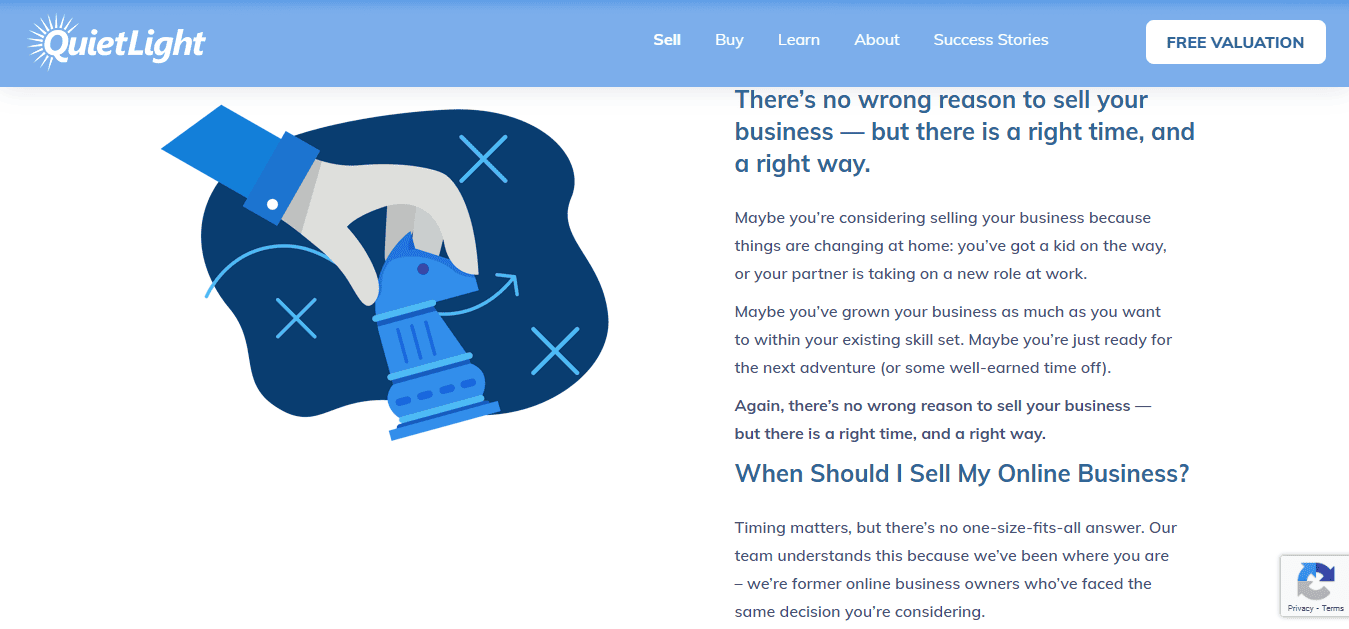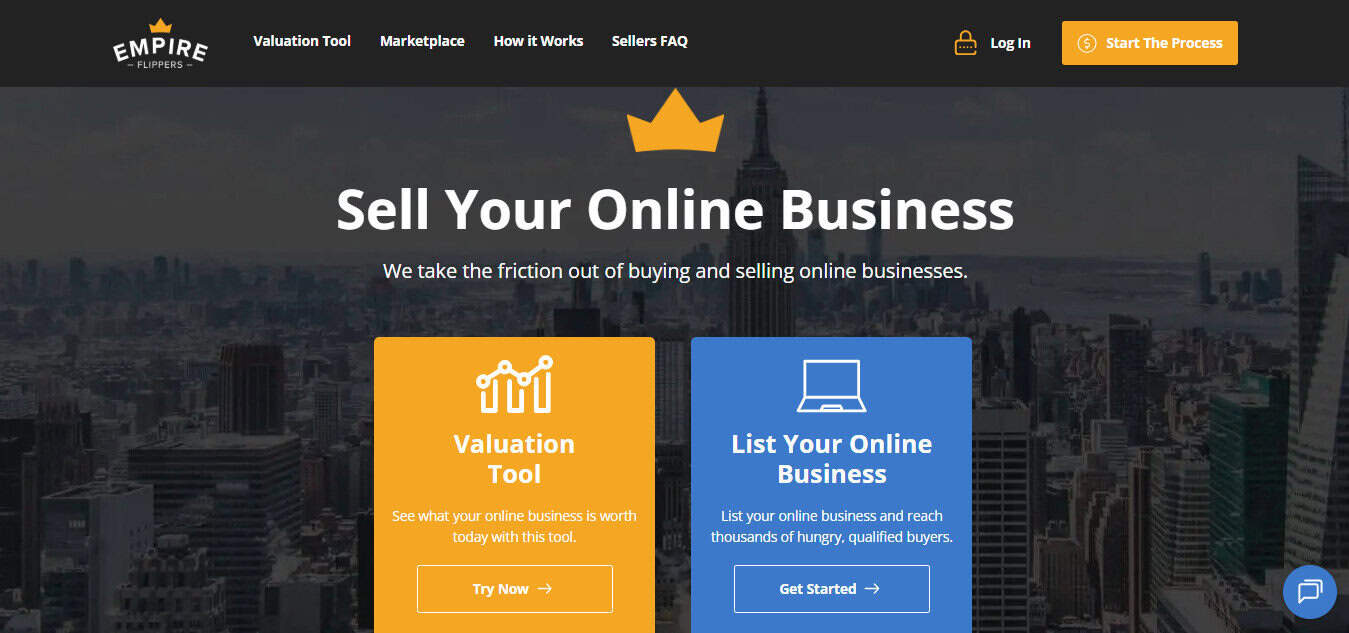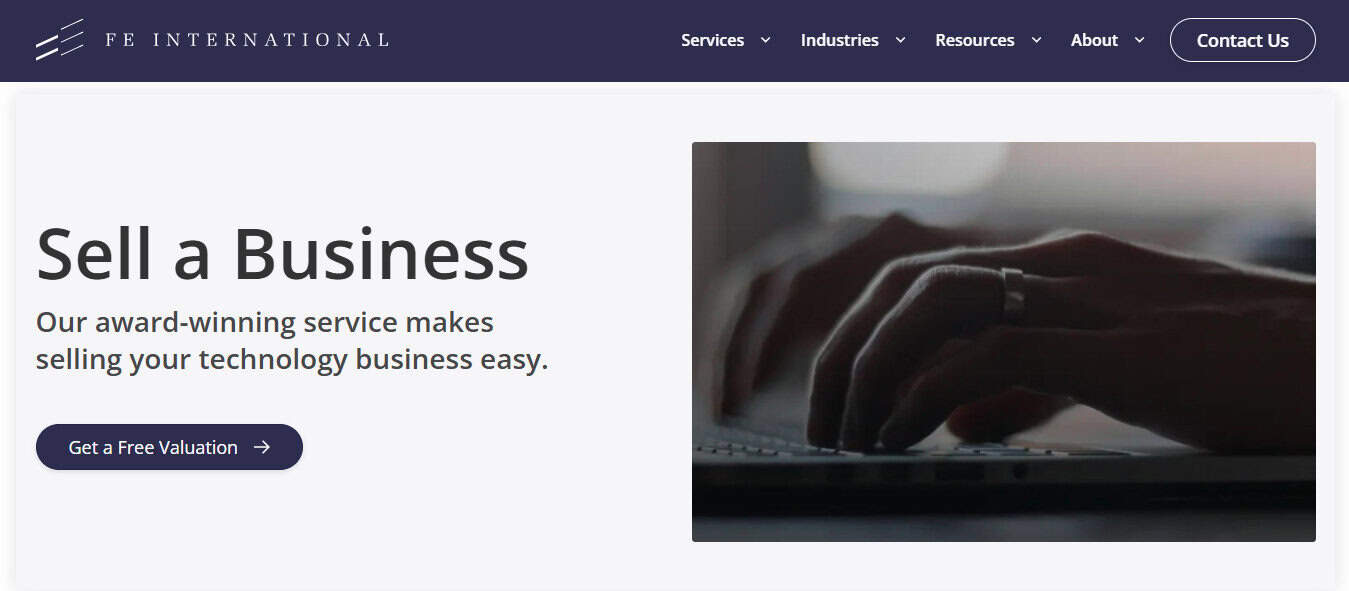Last Updated on August 17, 2025 by Ewen Finser
If you’re looking to exit your online business, you’re probably going to want a broker to help you find a suitable buyer willing to pay a good price.
The good news is there are plenty of options in this space. The bad news is that finding the right broker for your specific situation can be a lot harder than you might think. A lot will depend on the size of your transaction, the industry your company is in, and the amount of time you’re willing to leave it on the market, among many other factors.
Website Closers is one of the leading names in the business brokerage industry. Founded over two decades ago, the company specializes in e-commerce brands, Amazon FBA companies, SaaS firms, content websites, and other tech businesses.
Let’s break down how Website Closers operates, what it does well, what it does poorly, and other things you’ll need to consider if you’re assessing potential partners for your exit.
What I Like About Website Closers

- Experience: Website Closers has been around for over two decades, making it one of the longest-standing brokerages out there. There are plenty of newer brokers providing a great service, but this type of longevity speaks for itself. If you value experience and a track record of success over everything else, Website Closers is worth a look.
- Wide variety of business verticals: Website Closers handles sales of Amazon FBA brands, dropshipping stores, affiliate content sites, SaaS apps, Shopify e-commerce businesses, and more (it’s worth noting that, if your company operates in a niche industry, this might actually be more of a disadvantage).
- Ability to handle big transactions: Not every online business broker can manage $10mn+ deals, but Website Closers is comfortable at that level of the market (and well above it in some cases). Whatever the size of your business, Website Closers likely has the network to handle it.
- Strong reputation: Website Closers doesn’t have the brand recognition of some bigger names in this industry (such as Flippa or Empire Flippers), but it has a very solid reputation. The company boasts hundreds of pieces of positive feedback and high average satisfaction ratings across the major review platforms. I personally put a lot of faith in third-party review platforms, so it’s always encouraging to see strong performance here.
What I Don’t Like About Website Closers
- Opaque commission structure: A lack of clarity around fees is among the biggest red flags for me when weighing up a B2B service, and Website Closers is unfortunately guilty of this. Unlike some competitors, it doesn’t list commission rates publicly. Brokers likely decide on a rate during the sales process, which means you’re going to have to be ready to negotiate; this may add significant friction to the process. This isn’t an issue with many competitors; with Quiet Light, for example, you’ll know your commission fee will be capped at 10% of your sale value, and may go down for sales worth over $1mn. I go into more detail on the likely overall costs of doing a deal through Website Closers in the next section.
- Preference for large transactions: If your transaction isn’t in the seven- or eight-figure range, you’re probably not going to get the attention you need from Website Closers. Officially, it handles deals of all sizes; however, because the company does so much business in the $10mn+ range, agents are going to be less inclined to throw their full weight behind a much smaller account. Unless your sale is likely to net at least $5mn, I’d recommend looking elsewhere.
- Slow sales: Website Closers probably won’t get your deal done as quickly as its competitors might. This is a symptom of its big-sale bias; agents aren’t used to rushing transactions because they want to squeeze as much value as possible out of each account they work on. Spending an extra couple of weeks on a sale could result in tens of thousands of extra dollars when you’re working in the seven-figure range. However, if you’re looking to get your deal done quickly, this is something to bear in mind.
- Communication: Despite working with large brands, Website Closers is surprisingly mediocre when it comes to client service. The company’s responsiveness is not as sharp as that of other brokerages. This is a big no-no for me, especially if you’re dealing with a very high-value business asset.
Other Possible Costs
Aside from the brokerage commission, there aren’t many direct fees to worry about with Website Closers. They do not charge for valuations or initial consultations (this should be standard in the industry, but unfortunately is not. Stay well away from providers that try to charge you for initial inquiries.).
Once you decide to sell with Website Closers, you’ll need to sign a representation agreement that gives the company exclusive rights to broker the sale for a certain period (the company’s exclusivity term isn’t publicly stated, but 3-6 months is common in the industry).
During that term, you can’t sell your business through another channel without owing the broker a commission. You’ll want to clarify the length of this exclusivity period when you engage, because Website Closers isn’t firm on its commission rates or exclusivity periods; you may be able to negotiate a shorter term here if that’s a priority for you.
Website Closers will prepare marketing materials (like a prospectus) at its own expense as part of its service. If a sale is successful, aside from the commission, the only other costs might be standard closing costs like escrow fees or attorney fees, which are typical in any business sale.
Competitor Comparison
So, how does Website Closers stack up against the competition?
Quiet Light
Quiet Light sits in roughly the same market segment as Website Closers. However, it makes much more of an effort to serve companies in the mid-size transaction range than Website Closers does. As long as your sale is likely to fetch $100,000 or more, Quiet Light may potentially be the right partner for you.

This company’s big differentiator is the experience of its brokers. Quiet Light only hires account managers who have either bought or sold companies themselves. This can yield huge benefits when it comes to vetting offers, coming up with valuations, pitching companies to the right potential buyers, and identifying less obvious problems that might arise during deals. I’m a big believer in hiring service providers with as much relevant experience of your pain points as possible, which is exactly what you’ll find here.
Couple all that with the 10% cap on success fees (which slides downwards the bigger your transaction value becomes), and Quiet Light starts looking like a really high-value option. It’s the broker I’d personally recommend to most mid-market companies.
Empire Flippers
Empire Flippers is one of the biggest players in this space, but its model is a bit different from that of a traditional broker.

Empire Flippers started as a marketplace for content and affiliate websites and has grown into a platform for buying/selling all kinds of online businesses (including e-commerce, FBA, SaaS, etc.). It operates more like an online marketplace with brokerage services than a true broker; if you use Empire, you’ll have to do a lot of buyer vetting and offer analysis yourself.
The platform posts anonymized listings publicly (full listings with specific company details are only available to interested parties who sign NDAs). This means that companies listed with Empire attract a lot more eyeballs than they would elsewhere.
The big advantage of Empire Flippers over its competitors is speed. Because of its huge buyer pool, it can get deals done very quickly. So, if you’re trying to offload a business asset as quickly as possible, and you’re not hung up on getting the best possible price, there’s a lot to like about Empire. For something that represents a bigger chunk of your portfolio, though, I’d recommend looking elsewhere.
FE International
FE International is a brokerage that has historically specialized in SaaS, software, and content businesses. In recent years, FE International has moved up-market, focusing on larger deals (typically multi-million dollar sales) and corporate buyers. This means it’s more or less in direct competition with Website Closers.

FE International keeps its offerings private – you won’t see a public marketplace of listings on its website. Buyers have to register and prove seriousness to get access to deals. This can be good for confidentiality, but it also means less transparency for casual sellers/buyers just trying to gauge the market.
FE’s fee is generally around 15% commission, though this may be negotiable; like Website Closers, it doesn’t have a standard publicized rate.
In terms of the Website Closers vs. FE International conversation, I think industry vertical is the biggest differentiator between the two. FE International might be better for purely SaaS or software businesses in the upper price tier, as it has closed many deals in that arena. Website Closers works on a broader range of business types and has a stronger background in e-commerce and Amazon-related companies in particular.
Other than that, I don’t think there’s a huge amount to separate the two. If you’re trying to decide between them, schedule consultations with both and see which one appeals to you more.
Is Website Closers Right For You?
If you’re trying to offload an online business worth $5mn or more, Website Closers may be worth looking at. It has a solid pedigree in this segment of the market, and the reviews from sellers are generally positive.
However, the platform’s opacity around pricing and responsiveness issues would be enough to push me towards a competitor. Considering its competitive rates and high-touch service, I think Quiet Light is the better option for the majority of businesses.

